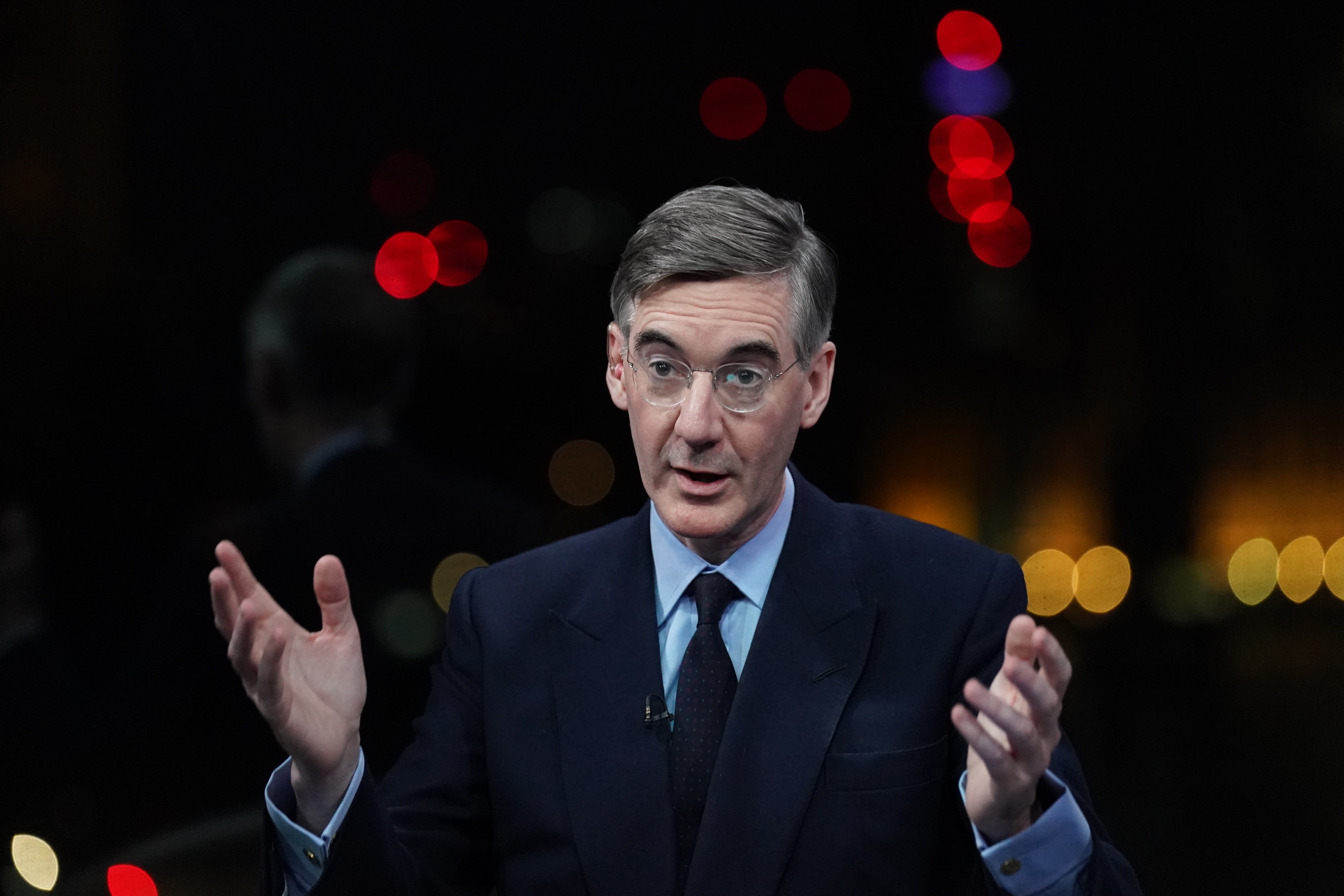Sunak ‘behaving like a Borgia’ over EU laws bonfire U-turn, Rees-Mogg suggests
The former business secretary has accused Rishi Sunak of broken promises and missed opportunities over the move.

Tory Eurosceptic Jacob Rees-Mogg has accused Rishi Sunak of “behaving like a Borgia” after the Government scaled back its promised post-Brexit “bonfire” of EU-era laws.
The Prime Minister has faced upset on the right of his party since it was announced that around 600 laws would be revoked under their legislation, rather than the 4,000 pledged.
Mr Rees-Mogg, who introduced the plans when he was in Liz Truss’s cabinet, accused Mr Sunak of having missed “a great opportunity” by abandoning a deadline to review or repeal remaining laws.
Speaking to BBC Radio 4’s Today Programme, the former business secretary said: “Politicians need to stick to what they said they will do.
I’m afraid it’s no good being holier-than-thou if you then end up behaving like a Borgia
“When Rishi Sunak resigned (as chancellor), he said in his resignation letter to Boris Johnson that he believed the public are ready to hear the truth – our people know that if something is too good to be true, then it’s not true.
“He then said something that people like me wanted to hear, and has failed to deliver it.
“I’m afraid it’s no good being holier-than-thou if you then end up behaving like a Borgia.”
The House of Borgia was a wealthy dynasty notorious during the Italian Renaissance for corruption and immorality.
Meanwhile, Business Secretary Kemi Badenoch appeared to blame Whitehall officials for the move.
In an article for the Telegraph, the minister said she had inherited a situation in which the focus was on which laws should be preserved, “rather than pursuing the meaningful reform Government and businesses want to see”.
She wrote: “I decided a new approach was needed; one that will ensure ministers and officials are freed up to focus on more reform of REUL (Retained EU Law), and to do it faster.”
Home Office minister Sarah Dines also defended the Government’s shift as “not quite a U-turn”, telling GB News: “It’s a more calculated, calm way of getting rid of some of these laws. We don’t want to throw the baby out with the bathwater.”
The climbdown was cautiously welcomed by critics in business and environmental groups who had warned the project was unfeasible and that important regulations would be scrapped without proper scrutiny.
Ms Badenoch acknowledged there are “risks of legal uncertainty” by automatically scrapping the copied-over laws by the end of the year in a sunset clause in the Retained EU Law (REUL) Bill.
She said ministers will amend the Bill making its way through Parliament to replace the current sunset clause with a list of 600 EU laws to be revoked by the end of the year.
A further 500 pieces of retained EU legislation would be revoked by other means, the minister claimed, but it was unclear if that will happen by the end of the year.
It had been estimated that around 3,700 laws would need ditching but governmental departments have now identified around 4,829 retained laws.
Ms Badenoch said around 1,000 had been scrapped or altered already, though Government data shows 906 EU laws have been dealt with so far, and only 245 of those have been repealed.
Labour branded the move a “humiliating U-turn” from a “weak and divided Government” while the Liberal Democrats accused ministers of leaving “a lot of uncertainty” hanging over the status of legislation.





